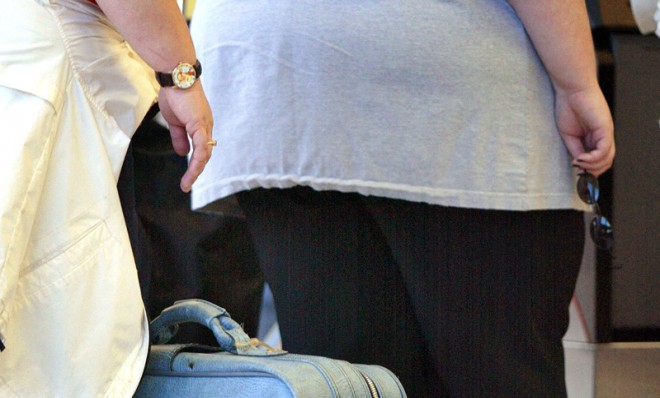Should airlines charge passengers by weight?
Samoa Air becomes the first to weigh travelers and their luggage


A free daily email with the biggest news stories of the day – and the best features from TheWeek.com
You are now subscribed
Your newsletter sign-up was successful
Samoa Air has become the first airline to charge passengers according to how much they weigh. The company carries travelers on hops between Pacific islands that have some of the highest obesity rates in the world. Instead of charging for each seat, Samoa Air has started weighing passengers along with their luggage, and charging them a fee reflecting the total, depending on the length of the flight. Fees range from about $1 to $4 per kilo (2.2 pounds), meaning passengers pay a little under $50 to $200 per 100 lbs. "This is the fairest way of traveling," Samoa Air CEO Chris Langton says. "There are no extra fees in terms of excess baggage or anything — it is just a kilo is a kilo is a kilo."
It's hard to argue with Samoa Air's math. Its fleet is mostly made up of small, 12-seater planes, so passengers and baggage account for "a much larger proportion of total takeoff weight than bigger airplanes," says Jamie Condliffe at Gizmodo. "That, and the fact that Samoa has a serious obesity problem" make the system a potential game-changer for Samoa Air. "The real question, though, is whether this may set a precedent that other airlines latch onto." If it does, "time to diet."
Some frequent travelers will do just that if more airlines adopt "pay as you weigh" pricing, says Bharat Bhatta, a Norwegian economist. "To the degree that passengers lose weight and therefore reduce fares, the savings that result are net benefits to the passengers," Bhatta wrote last week in the Journal of Revenue and Pricing Management. And this might be where the industry is heading — Air France, Southwest Airlines, United, and some other carriers have policies requiring some passengers to pay a second fare if they can't fit comfortably in a single seat. Bhatta proposes three possible pricing plans: Charge fees for total weight, as Samoa Air does; set a fixed rate with a surcharge for overweight passengers; or establish a fee for people of average weight, with extra charges and discounts for people who weigh in above or below the limit.
The Week
Escape your echo chamber. Get the facts behind the news, plus analysis from multiple perspectives.

Sign up for The Week's Free Newsletters
From our morning news briefing to a weekly Good News Newsletter, get the best of The Week delivered directly to your inbox.
From our morning news briefing to a weekly Good News Newsletter, get the best of The Week delivered directly to your inbox.
Despite complaints from some overweight travelers that such policies amount to discrimination, the majority of international travelers in recent surveys support some type of weight-based fee for airline passengers. A significant number, though — 41 percent, in one recent poll — say that charging overweight passengers more amounts to "discrimination." Bhatta points out that airlines can save $3,000 per year in fuel costs for every kilogram they shave off a plane's weight, so the companies would reap benefits from a pay-as-you-weigh plan. The environment could benefit, too, as CO2 emissions would decline accordingly. But, judging by the comments sections of articles on Samoa Air's new policy, heavy frequent travelers will expect to get more if they pay more. Bigger seats, maybe? It's hardly fair, they say, to ask people to pay more and still be crammed into the same tiny, uncomfortable seats.
A free daily email with the biggest news stories of the day – and the best features from TheWeek.com
Harold Maass is a contributing editor at The Week. He has been writing for The Week since the 2001 debut of the U.S. print edition and served as editor of TheWeek.com when it launched in 2008. Harold started his career as a newspaper reporter in South Florida and Haiti. He has previously worked for a variety of news outlets, including The Miami Herald, ABC News and Fox News, and for several years wrote a daily roundup of financial news for The Week and Yahoo Finance.
